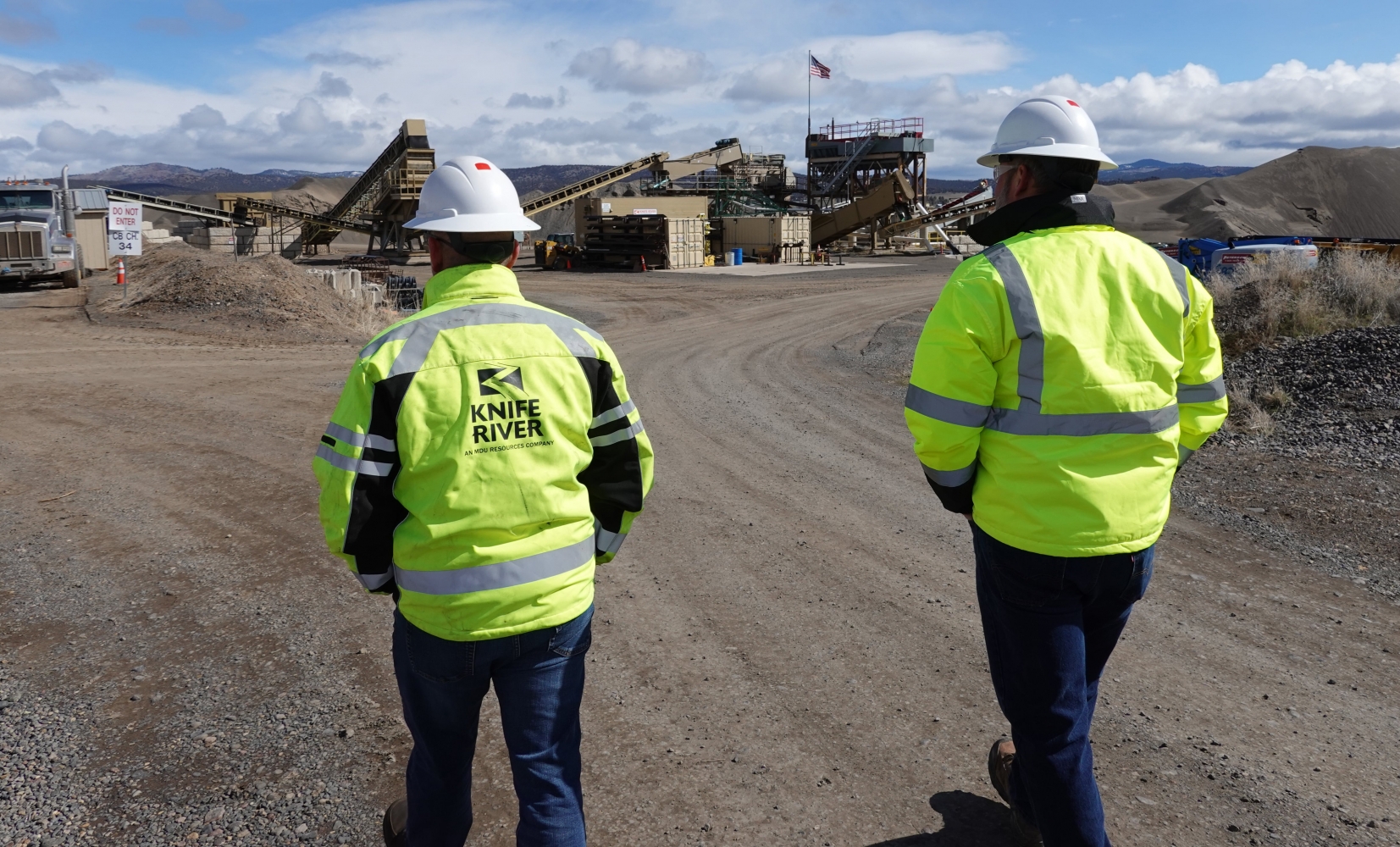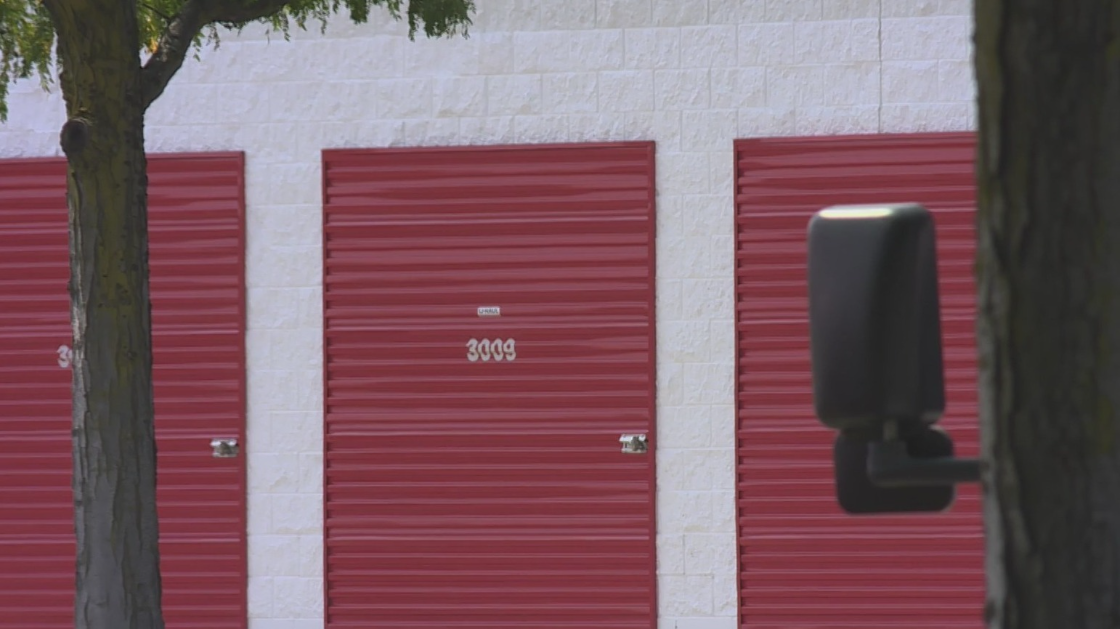

Published on: 08/26/2025
This news was posted by Oregon Today News
Description

Negotiations over how a mining company will monitor itself amid accusations of groundwater pollution in Crook County are expected to come to a head this week.
Friday is the deadline state regulators gave Knife River, a giant of the construction materials industry, to submit a final draft plan for a water sampling plan tied to its sand and gravel mining operations near Prineville.
The company runs a site there that’s been under scrutiny since 2022, when nearby residents started documenting well water choked with black sludge.
The sludge turned up in toilet tanks. It broke pipes and ruined appliances. Other residents photographed mysterious skin rashes and unexplained livestock deaths. The neighborhood organized to test its wells. Those tests showed elevated levels of heavy metals and other pollutants that put human health at risk, results that have since been reconfirmed by state-led investigations.

Pinpointing the source of the contamination has been complicated. Knife River denies it caused the water problems. Oregon’s environmental and mining regulators hope the company’s monitoring plan will reveal a definitive cause, while some residents have already lost their trust in state oversight.
The contaminants turning up in wells “are not unusual for the area and reflect naturally occurring groundwater conditions,” Knife River spokesperson Jay Frank said in an email.
The company is motivated to prove its innocence because it wants to expand operations in the rural area populated by farmers and landowners five miles northwest of Prineville.
Before state regulators will permit that expansion, they’re pressing Knife River to show its gravel mine and processing plant does not add manganese and other pollutants to the groundwater. Too much manganese in water can cause bad smells and stains, and ingesting high levels can be toxic, leading to neurological problems.
Oregon Department of Environmental Quality spokesperson Greg Svelund said it’s taken eight months for Knife River and regulators to get on the same page about the technical requirements of a monitoring plan.
“We really don’t know what’s going on and we need more data,” Svelund said.
According to a draft of the plan, Knife River will monitor 17 wells and also collect data on surface water and soils at its site. After the state receives at least a year’s worth of data, it will need time to analyze it, Svelund said.
Meanwhile, some residents have been without safe drinking water from the tap for years. Ashley McCormick and her family live immediately downhill from the existing mine site. They’ve been hauling drinking water in 5-gallon jugs for nearly three years. Her kids are now 9, 11, and 13.
“It wears them out,” McCormick said this week. “When we have friends come over, the first thing all the kids say to their friends is, ‘Don’t drink it. The water’s not safe.’”

Last month, DEQ-backed water testing of 58 wells near the existing mining site reconfirmed elevated levels of various contaminants, most commonly manganese, arsenic and iron. The results mirrored findings from a previous round of state testing last year.
Knife River’s Frank pointed out that there is no data on water quality pre-dating mining operations. Real estate transactions in Oregon don’t require such tests.
Unlike public water supplies serving cities, private wells in Oregon are virtually unregulated.
That makes the last two years of state-sponsored well testing in Crook County unusual. Residents were offered individualized counseling about their results through the Oregon Health Authority, according to a statement by OHA toxicologist David Farrer.
“Now that individual well users have their data along with individualized health interpretations, OHA staff is drafting a Health Consultation report that is intended for public release later this fall,” Farrer said in an email.
That report will “include at least one recommendation to all Oregonians that use private domestic wells to get their wells tested if they haven’t already,” he added.
Oregon Gov. Tina Kotek’s office said this week that she “is directing the agencies to work with greater urgency to get the Knife River testing complete and deliver answers to residents,” spokesperson Anca Matica said in a statement.
As OPB first reported in 2023, Oregon mining regulators initially dismissed residents’ groundwater complaints and ignored possible permit violations by the multibillion-dollar construction materials company. Federal lawmakers stepped in to pressure Oregon to vet the complaints more deeply.

At its existing Woodward site near Prineville, the company’s processing plant separates out the rocks from valuable construction materials like sand and gravel. It then uses unlined ponds to hold the wastewater. If allowed to expand, this plant would process what the company digs out of nearby farmland.
“Knife River has not lined the process water ponds, in keeping with statewide accepted practice,” Frank said. “We find no evidence suggesting the process water ponds are influencing any area drinking water wells.”
McCormick said her trust in state oversight has evaporated. She’s skeptical of Knife River collecting the samples intended to pinpoint a pollution source.
“We all feel very alone,” she said. “We’re not scientists, we don’t work for DEQ, we don’t work for the state. We don’t do geology stuff, but reading over this, it doesn’t make sense,” she said of the company’s draft plan.

News Source : https://www.opb.org/article/2025/08/26/crook-county-oregon-well-drinking-water-knife-river-pollution/
Other Related News
08/26/2025
The National Weather Service issued an updated severe thunderstorm warning at 805 pm on Tu...
08/26/2025
THE DALLES Ore KOIN Roughly a month after the remains of a missing woman were found in a ...
08/26/2025
The National Weather Service issued an updated report at 750 pm on Tuesday for strong thun...
08/26/2025
The Prime Video series is described as a music-infused young adult retelling of the classi...
08/26/2025










